January 31 – February 6
A look at the headline-making events this past week

România Internațional, 07.02.2016, 14:02
Talks on the upcoming local elections in Romania
Romania’s technocratic
prime minister Dacian Ciolos on Monday met the representatives of parliamentary
parties to discuss a proposal by the National Liberal Party on the return to a
two-round system for the election of mayors. The Liberals say this would give
more power to voters and that the current one-round system benefits big
parties. Their proposal is only supported by the People’s Movement and the
Romanian Socialist Party. The Social Democratic Party, the National Union for
the Progress of Romania, the Democratic Union of Ethnic Hungarians in Romania
and the Alliance of Liberals and Democrats are opposed to changing the law at
this point, saying this would run counter to a Constitutional Court decision
forbidding the amendment of election laws, less than a year to go before
elections.
This is what the prime minister said after talks with the
parliamentary parties:
I will
not accept that the government be used
as an instrument for political parties to achieve their own interests. I think
this debate should continue so as to be clear about what we want in the future.
From what I see, the parties themselves do not know exactly what they want. My
conclusion is that there is a majority in Parliament that does not want the
rules of the game to change at this point.
The National
Liberal Party says it will not give up on its proposal to have the two-round
system used in local elections. In another move, the Social Democratic Party
and the National Union for the Progress of Romania on Thursday signed a
protocol of collaboration during the local and parliamentary elections. The
Social Democrats wish to sign a similar agreement with the Alliance of Liberals
and Democrats.
Former interior minister Gabriel Oprea loses his immunity,
while the Prosecutor General, Tiberiu Nitu, resigns
The former
interior minister and senator of the National Union for the Progress of Romania
Gabriel Oprea has lost his immunity. The Senate approved a request by the
National Anticorruption Directorate to start a criminal prosecution against Oprea
over his benefiting from allegedly illegal police escort in a case that
resulted in the death of a policeman. Gabriel Oprea is accused of abuse of
office to obtain undue benefits while serving as minister. Oprea insists he is
innocent. Romania’s Prosecutor General Tiberiu Nitu has resigned over an
investigation into the abusive use of official police escort. He, too, says he
is innocent, but that he resigned so that his name and office should not be
associated with a situation that would harm the image of the General
Prosecutor’s Office. By law, only the president, the prime minister and the two
Parliament speakers are entitled to police escort, while ministers can only use
it in emergency cases.
Bucharest hails the United States’ announcement to boost
significantly the 2017 defence budget to counteract threats in Eastern Europe
The Romanian
authorities have hailed the US’s announcement about the four-fold increase of
the 2017 budget for the European Reassurance Initiative, saying this is a
confirmation of the US’s strong commitment to European security, thus
consolidating NATO measures for collective defence and discouraging the risk
factors. The implementation of the measures announced by Washington will
contribute significantly to consolidating the security of Romania and the other
allies in the face of the security challenges in the region. The Romanian
ambassador to the US, George Maior, says the additional allocation of resources
to counteract threats in Eastern Europe is good news for Romania, which can
act as a partner for the US in discouraging threats. The Pentagon has said the
US will significantly consolidate its military presence in Eastern Europe with
troops, tanks and artillery to counteract the threat posed by Russia.
The European Commission has improved its estimates about
Romania’s economic growth in 2016
Romania’s
economic growth is expected to peak at 4.2% in 2016 and slightly decrease to
3.7% in 2017, according to the winter economic forecast published by the
European Commission on Thursday. Last autumn, the Commission forecast a growth
rate of 4.1% in 2016 and 3.6% next year. According to estimates, domestic
consumption remains the main driving engine of economic growth, while the net
contribution of exports remains negative. The VAT cut from 24 to 20% as of
January and the rise in the minimum wage as of May will stimulate consumption
and economic growth.
The European Commission warns, however, of a series of
risks, despite a robust economic growth. As a result of lower taxes and higher
spending, the budget deficit will grow substantially from 1% in 2015 to 4% next
year. The inflation rate will also grow in the second part of the year as a
result of salary rises. The European Commission forecast is similar to that
published by Coface, a company specialising in credit risk management, which
expects a 4.2% economic growth rate for Romania in 2016. The World Bank has
also improved its forecasts for this year, with the Romanian economy expected
to grow by 3.9%.





























